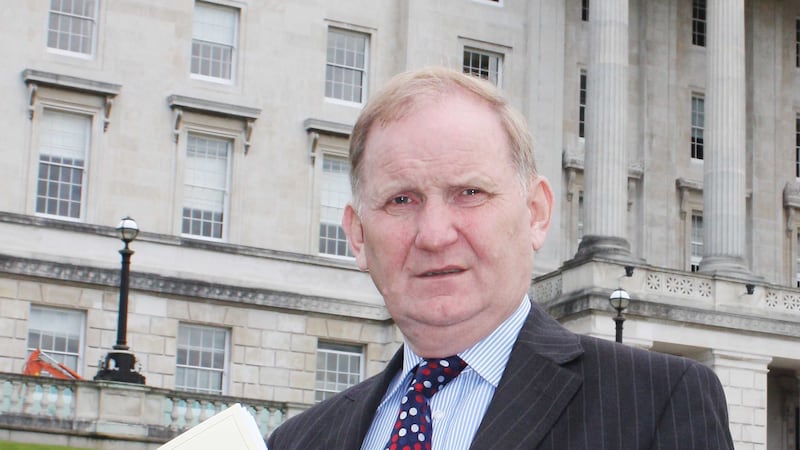A BID to overturn the ban on paying for sex in the north will be opposed by the First and Deputy First Ministers, the High Court has been told.
Arlene Foster and Martin McGuinness have instructed Stormont's chief legal adviser to intervene in the landmark legal action being brought by sex worker Laura Lee.
Mr Justice Maguire had been expected to rule on whether to grant leave for a judicial review but adjourned his decision until next month after a last minute intervention from Attorney General John Larkin QC.
Mr Justice Maguire told Belfast High Court: "I am disinclined to create circumstances where leave is granted without matters being properly rehearsed."
Northern Ireland became the first part of the UK to make paying for sex a crime when the legislation was passed last year.
The Bill, championed by DUP Assembly member Lord Maurice Morrow, means anyone caught breaking the law could be jailed for up to a year and faces a hefty fine.
Previously, paid-for consensual sex was legal although activities such as kerb crawling, brothel keeping and pimping were not.
The law change was welcomed by Christian organisations but prostitutes' campaigners argued that it has endangered sex workers by pushing the industry underground.
Judge Maguire expressed frustration at the late notice of the intervention by the Office of First and Deputy First Minister (OFMDFM) and said "a clear and cogent explanation" had not been provided.
"The court has been provided with scant explanation from OFMDFM was to why, as of yesterday, at very late notice, they wish to contest this application and have the case adjourned for that purpose," the judge said.
The court also heard that the Department of Justice, the only named respondent, was not opposed to the case going ahead.
Barrister Tony McGleenan QC said the department had been placed in an "unusual" position because Justice Minister David Ford had opposed the legislative change when it was debated in the Assembly.
However, Mr McGleenan told the court: "In our view the matter is arguable."
He said the OFMDFM intervention had not been anticipated, adding that Ms Lee had "got it right by directing fire towards this department."
Meanwhile counsel for Ms Lee argued the case was of "genuine importance" for all sex workers.
Steven McQuitty said: "We are concerned about the late, grossly late, improper intervention from the First and Deputy First Ministers.
"We say at this stage that intervention is without merit."
The barrister later added: "If not improper, (it is) highly unorthodox that they should now try to intervene when the DoJ recognises the substantial importance of this case."
Outside the court, Ms Lee, a high profile campaigner for better rights for prostitutes, expressed disappointment at the delay.
"I am disappointed but I understand that due process must be followed and I will be returning to court on March 14," she said.
"I am taking this case because sex workers are placed in danger every single day when we are compelled to work on our own.
"Last week saw the absolutely horrific murder of another sex worker in Aberdeen.
"She suffered a fate that dogs in the street should never, ever meet. And, in her name and in the name of every other sex worker who has died under these nonsensical laws, I will fight this case."
The hearing has been adjourned until next month.


